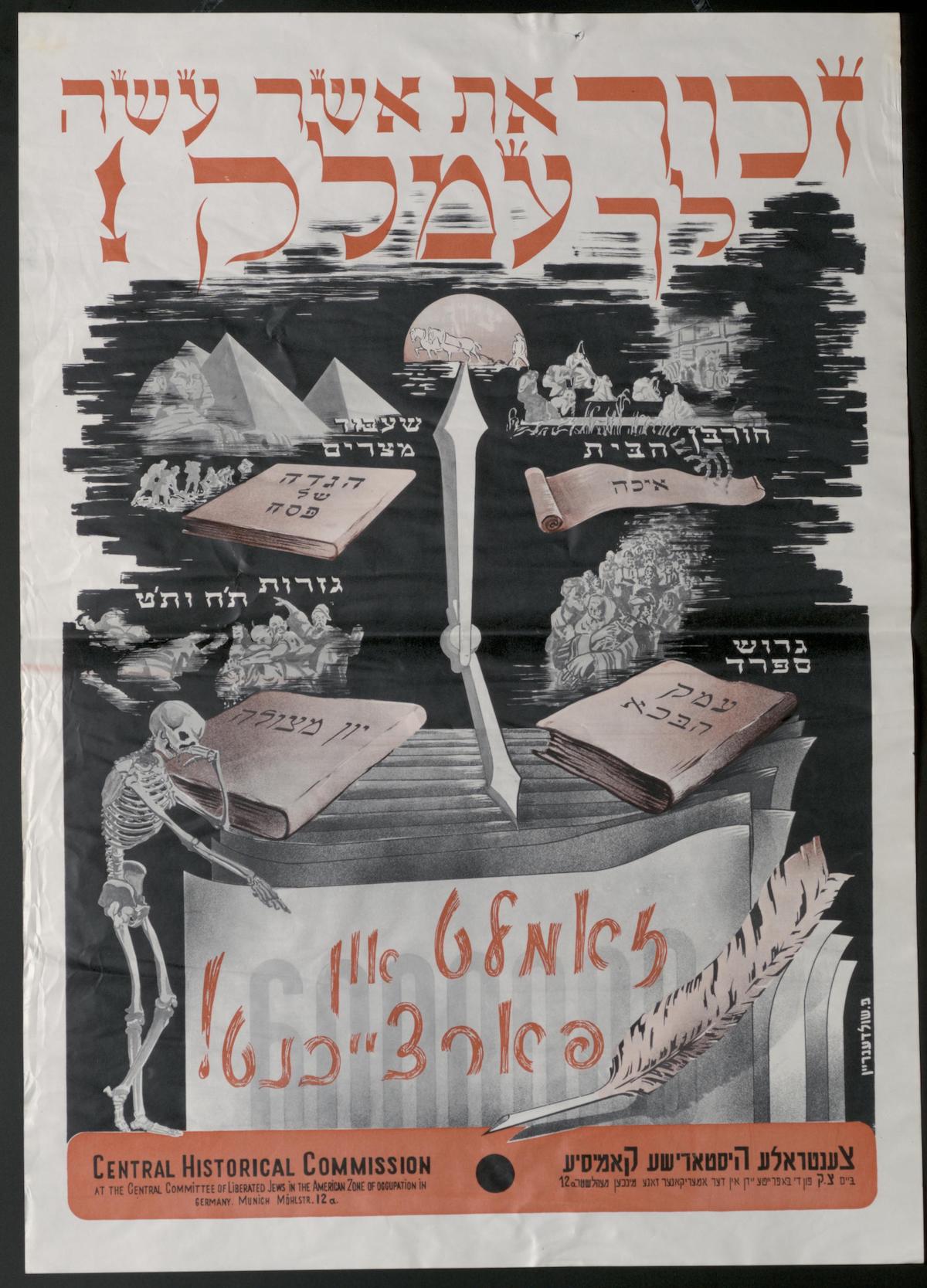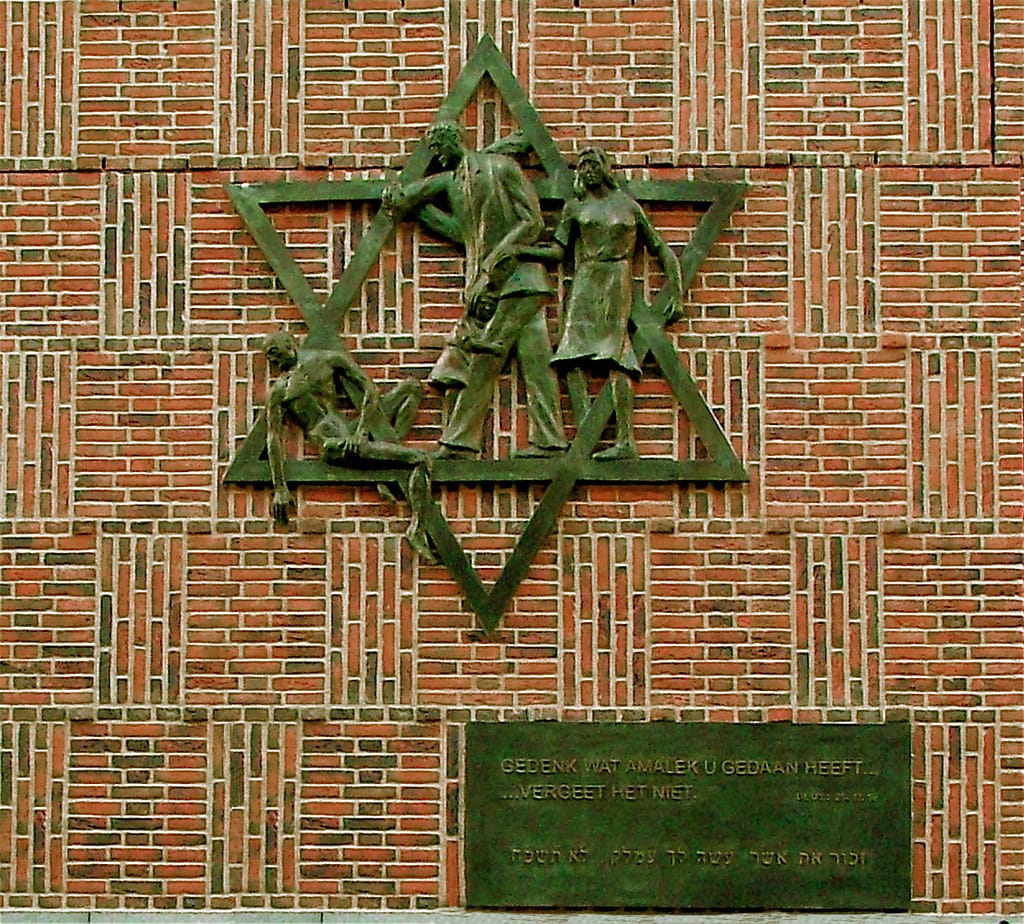Was Netanyahu's scriptural reference to Amalek a call to genocide in Gaza?

On Oct. 28, 2023, Israeli Prime Minister Benjamin Netanyahu stood before our grieving nation and delivered a speech in which he said, “Remember what Amalek has done to you.”
This was a line directly from scripture, which is normal for Netanyahu’s rhetorical style. Yet this time, this line from scripture, acknowledging the worst attack in ancient Israel’s history, just after the worst attack in modern Israel’s history, brought our prime minister into a backlash of accusations.
This quote initially sparked a woke social media frenzy accusing the prime minister of inciting genocide against Palestinian people; making note of a later call for total destruction of the Amalekites in the Tanakh. Accusations didn’t stop with the keyboard warriors, but eventually entered into legal discourse, when South Africa's legal team used this quote in its deposition brought against Israel at the International Court of Justice (ICJ).
Aside from whether or not South Africa has grounds to file a case against Israel, the international law their team brought into question is whether or not Israel is in violation of the Genocide Convention in its military response to the Hamas led massacre on Oct. 7.
The irony of the matter is that the Genocide Convention was written in response to the Holocaust – an event that saw the systematic murder of over six million Jews, and for which the legal term “genocide” was even created and defined to begin with.
As Netanyahu has famously been quoted regarding this trial, “…the State of Israel is accused of genocide at a time when it is fighting genocide.”
Under International Law, the use of force and casualty numbers alone during a time of war does not constitute genocide. It is an offense driven by specific intention to destroy in whole or in part a specific people group. The normal pro-Palestinian arguments of Disproportionality and Collective Punishment – even when tailored to the specifics of this war, are not enough to make a plausible legal argument for genocide.

This is where the Netanyahu speech comes into play.
If South Africa can adequately use the Amalek quote, along with statements from other government ministers sharing similar themes, they can begin to build a case that assigns genocidal motive to the consequence of force that the people of Gaza are suffering from Israeli strikes on Hamas targets.
The Israeli legal team’s response to this specific claim in the World Court has been that it’s a grave “distortion” of reality.
As pointed out by Prof. Malcolm Shaw in his address to the ICJ, when looking at the full context of the speech, along with documented Israeli policy statements about maintaining the need to protect those militarily uninvolved, the South African argument is indeed a distortion.
“To produce random quotes which are not in conformity with government policy is misleading at best,” Shaw said.
Misleading is an appropriate description for the courts, but beyond legal discourse, this accusation is still problematic. Linking this invocation of Amalek to the idea of inciting genocide is a revisionist assault on the history of a people. It is an inversion of centuries worth of Jewish thought, where there has been a long-held tradition of using Amalek as a typology for antisemitism.

Whether discussing antisemitism of the Middle Ages and Blood Libels; the perpetrators of the Crusades, Inquisition, Pogroms or Holocaust, in both scholarly and popular discourse, these evil-doers and evil events are tied existentially to the likeness Amalek.
The exact verse that Netanyahu quoted is one often found on Holocaust memorials and in Holocaust literature. Yad VaShem has a poster on file from the 1940s, advertising for the need to record stories from Holocaust survivors, in bold letters stating “Zchor et asher aseh lecha Amalek,” the Hebrew rendering of “Remember what Amalek did to you.”
This long running comparison is purposeful and intentional. It has aided the Jewish people, the most persecuted ethno-religious people in world history, in generating a framework for the pains of their past.
Who is Amalek, and why is this people tied to antisemitism?
The Amalekites were the first tribe to wage war against the fledgling nation of Israel when they entered the wilderness after the Exodus. Unprovoked, Amalek viciously attacked the most weak and feeble among the Israelites, striking those lagging behind.
The Israelites eventually succeeded in defeating this evil attack, and when the story is recorded in Torah (Exodus 17), it comes with a mitzvah (command) to: “Remember what Amalek did to you on the way as you came out of Egypt…”
Netanyahu also explained the historical connection and how this biblical reference has been used throughout the ages.
“The Amalekites mercilessly attacked the Children of Israel after the Exodus from Egypt. The comparison to Amalek has been used throughout the ages to designate those who seek to eradicate the Jewish people, most recently the Nazis,” the Israeli premier said in a statement released on Jan. 16, 2024.
“That is why the words on a banner in a permanent exhibit at Yad Vashem, Israel's famed Holocaust Museum, urge visitors to 'Remember what Amalek did to you.' This same phrase appears in The Hague at the memorial for Dutch Jews murdered during the Holocaust. Obviously neither reference is an incitement to genocide of the German people,” he added.

From a religious standpoint, this command “to remember” is something the Jewish people take quite seriously, and do so yearly. The day of remembrance of Amalek is known as the Parshat Zachor, and occurs on the Shabbat before Purim, the Feast of Esther.
In the Haftorah reading for the Zachor, we encounter a different battle with the Amalekites than the one which greeted young Israel as it entered the the promised land. This next battle is one in which Saul is commanded to bring the Amalekites to complete destruction. This is the command for which the adversarial opinions on the prime minister’s speech build their case.
In Rabbinic Judaism, the command to bring Amalek to destruction is acknowledged, but the fullness of the teaching is an emphasis that one can and should discern Amalekites from non-Amalekites. The spirit of Amalek is of a specific evil that not all embody. Amalek “did not fear the Lord,” and this is no passive statement. They had utter contempt for His holiness, and complete disregard for the miraculous way He brought Israel out of slavery in Egypt. Psalm 83 even lists the Amalekites as an enemy of God. Amalek is not your everyday enemy, and his evil should be intentionally distinguished from all others.
Netanyahu remained consistent with the rabbinic teaching as he drew his speech to a close.
“In front of our brave and heroic soldiers, there is one prior mission: To defeat the murderous enemy and secure our existence in our land… The IDF is the most moral army in the world; the IDF does everything to avoid harming the the uninvolved.”
The uninvolved here, civilians protected under international law and the basic human decency of our IDF, being the non-Amalekites.
The biblical narrative continues as Saul disobeys the word of the Lord, sparing the life of Amalekite King Agag, which leads to Saul’s eventual ruin, and even future consequences for the nation of Israel.
The reason the Parshat Zachor falls on the Shabbat before the Purim feast, is because it is here, 600 years later, that a stunning arrangement of circumstances occurs.
Providentially, Mordechai and Esther, Benjaminites from the lineage of Saul, find themselves positioned in the royal family, with Esther as queen. Esther is called for such a time as this – that she might help spare the lives of their people. They work together to courageously thwart the plans of the wicked Haman, who is coincidentally (or not) from the lineage of the King Agag – yes, the same Agag spared by King Saul – in a reversal of the story of their ancestors.
The importance of the greater narrative of the Amalekites circles back the first battle in which scripture says, “the Lord will have war with Amalek from generation to generation.”
Saul’s neglect to exercise justice at the prescribed command of the Lord left future generations open to attack. This leaves us with a lesson on the consequences of confusing mercy with the need for justice.
While the physical descendants of the Amalekites are unknown today, this existential battle persists through the ideological descendants of Amalek. Each generation has to contend with this spirit of antisemitism that began in ancient times.
The process of remembering is not one of merely looking backwards, but rather that of a spiral, cycling around every year – and every generation – while simultaneously moving forward.
Prime Minister Netanyahu was not inciting genocide. Rather, he was participating in the tradition of his people, calling them into the command to remember the evil that was done to them, and bringing the Hamas attack into the greater context of Jewish history.
The events of Oct. 7 showed us just how greatly Hamas exemplifies a spirit of Amalek, attacking the weak and vulnerable of Israel, in ways unimaginable.
In the face of such evil, neither South Africa, the ICJ, the antisemitic left or right – not anyone, for that matter – should have the public support of taking this tradition of Jewish thought, a framework for processing the suffering of their past, and spinning it against them.
This, in itself, comes in a spirit of Amalek.
If we are to take cues from Esther on how to find Amalek’s defeat, the answer begins with the courage to recognize these evils, and say so.
Not only is this accusation of genocidal incitement a distortion, it's just plain wrong.

Callie Mitchell has called Jerusalem home since 2009, where she has built a life as an immigrant family with her husband, four children and shetland sheepdog. She holds a Master of Architecture degree from the University of Cincinnati, along with a certificate in Christian Apologetics and training in Antisemitic Studies. She is the co-leader of the biggest, longest running ministry to moms in Jerusalem. She loves teaching, making art, baseball, dogs and horses. You can find her regular updates on Israel at her YouTube channel Callie Mitchel - I Will Not Keep Silent.













